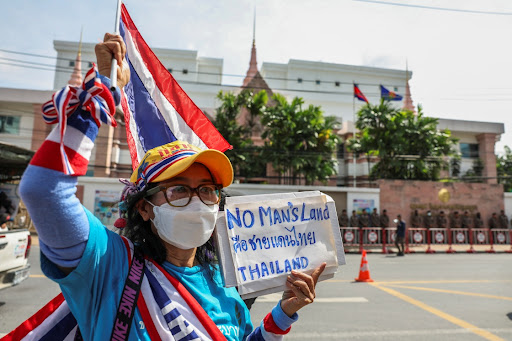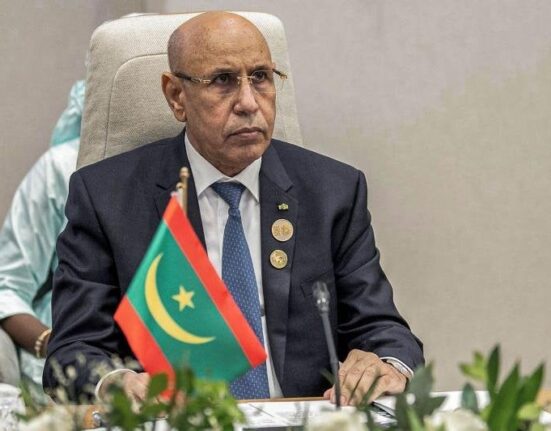Thailand recently made a significant move by shortening operating hours at 10 border crossings with Cambodia. The decision came amidst escalating tensions between the two countries following a deadly clash that occurred last month. This action was taken in response to security concerns, as both nations bolstered their military presence along disputed border areas. The Thai defense minister confirmed this development, highlighting the seriousness of the situation.
The clash on May 28 resulted in the tragic death of a Cambodian soldier in an area where the border is not clearly defined. In response, Thailand implemented changes at various checkpoints, including the busiest one in the eastern province of Sa Kaeo. The operating hours were reduced from 6 am to 10 pm to 8 am to 4 pm local time. This adjustment was made gradually and strategically to address specific circumstances in different areas, according to a Thai foreign ministry spokesperson.
Despite these changes, the situation along the border has been relatively calm, with residents near the Aranyaprathet-Poipet crossing in Sa Kaeo reporting a sense of normalcy. The atmosphere remained peaceful, with shops open and locals going about their daily routines as usual. This sense of calmness amidst tension reflects the resilience and adaptability of the communities living in these border regions.
Meanwhile, Cambodia’s foreign ministry has urged for the border disputes to be brought to the International Court of Justice (ICJ). The complexity and historical nature of these disputes have prompted the Cambodian foreign minister to seek an impartial and lasting resolution through international legal channels. However, Thailand has expressed its reluctance to involve the ICJ, preferring to resolve boundary-related issues through bilateral negotiations.
The longstanding territorial disagreements between Thailand and Cambodia date back over a century, stemming from colonial-era border demarcation by France in 1907. The disputes have led to sporadic conflicts, including a prolonged skirmish in 2008 over an ancient Hindu temple. Despite these challenges, the two countries have maintained warm diplomatic relations, with former leaders fostering strong ties that continue to influence the current leadership.
As both nations navigate this latest episode of border tensions, the underlying complexities and sensitivities of the disputes underscore the need for a comprehensive and enduring solution. The upcoming bilateral talks scheduled for June 14 offer a crucial opportunity for dialogue and negotiation. The decisions made in the coming days will shape the future trajectory of relations between Thailand and Cambodia, impacting not only border security but also regional stability in Southeast Asia.
In conclusion, the border crossing hour adjustments serve as a tangible reflection of the delicate balance between security concerns and the desire for peaceful resolution. The evolving dynamics in this longstanding territorial dispute highlight the importance of diplomatic finesse and strategic decision-making in maintaining stability and cooperation between neighboring nations. As the world watches developments in Southeast Asia, the outcomes of these discussions will carry significant implications for the broader regional landscape.









Leave feedback about this